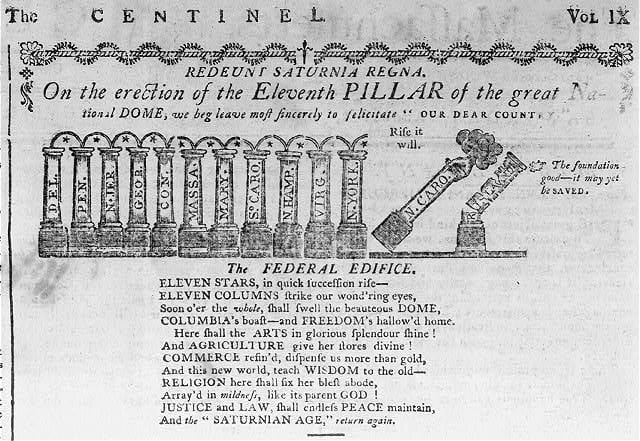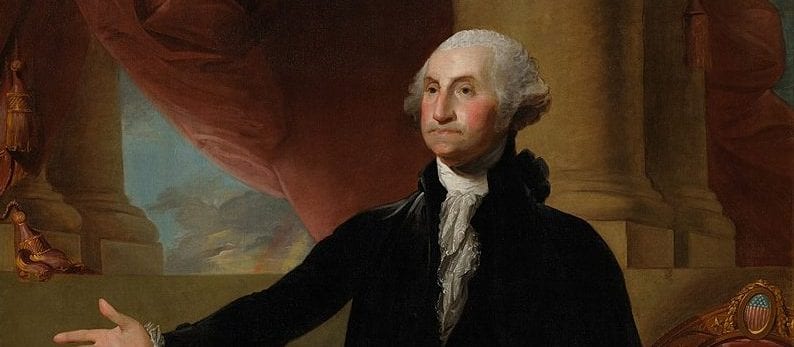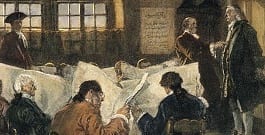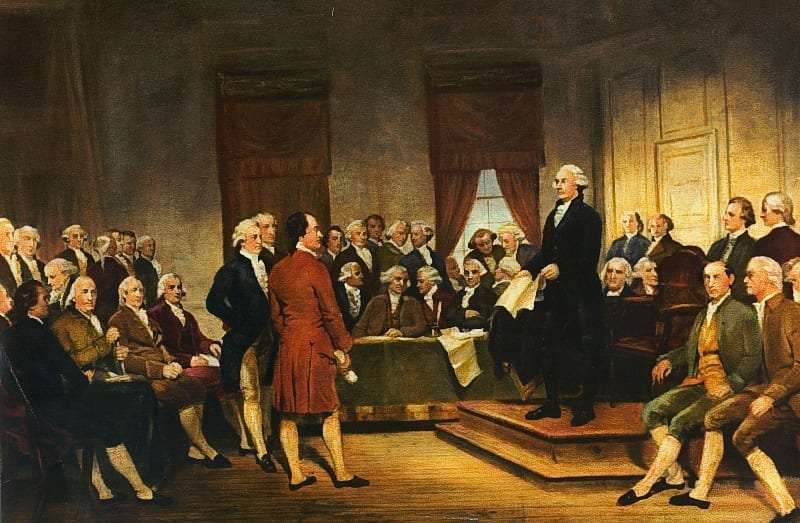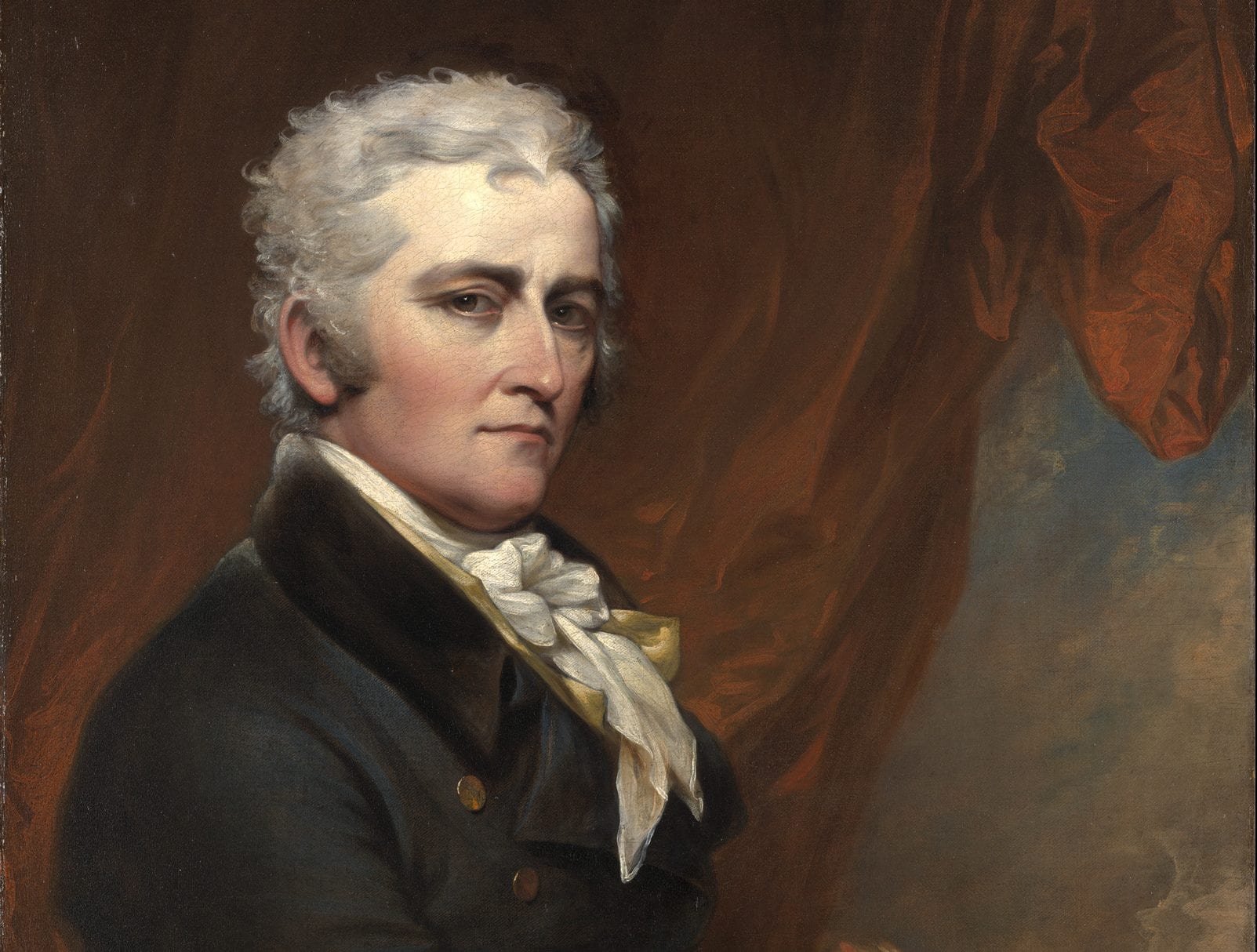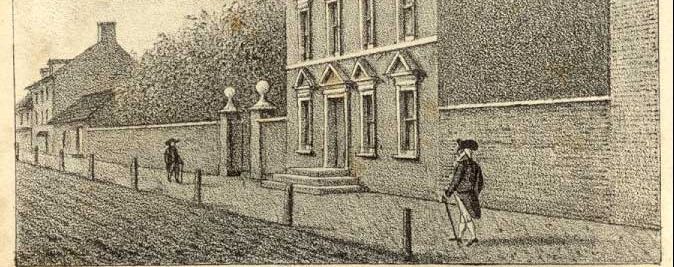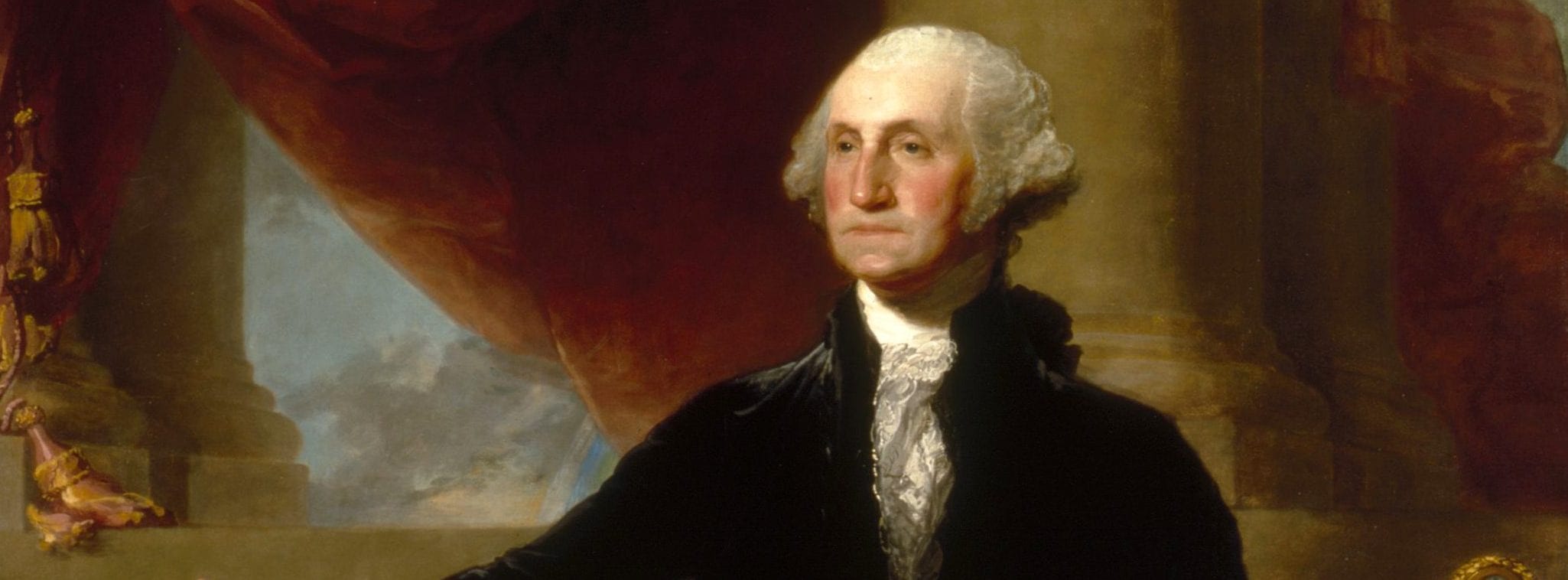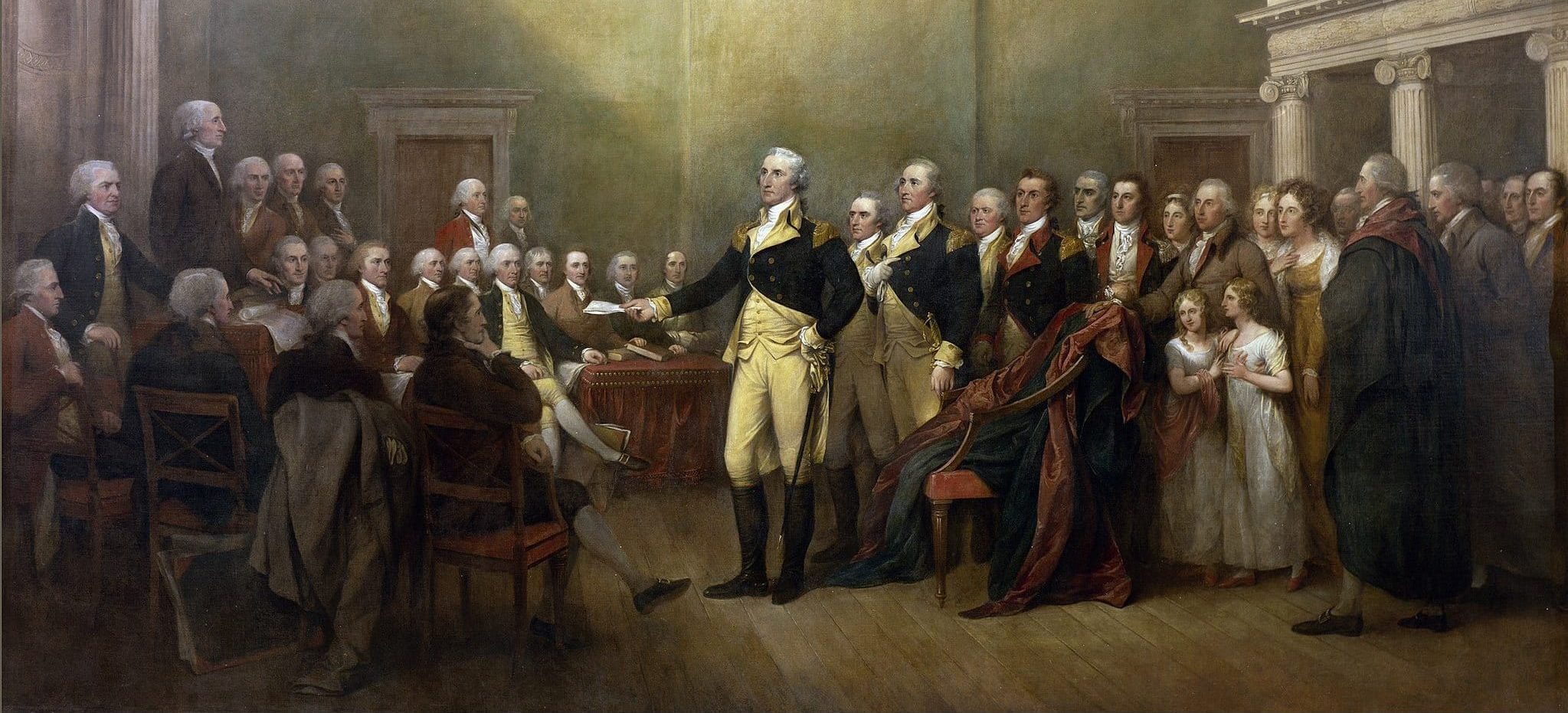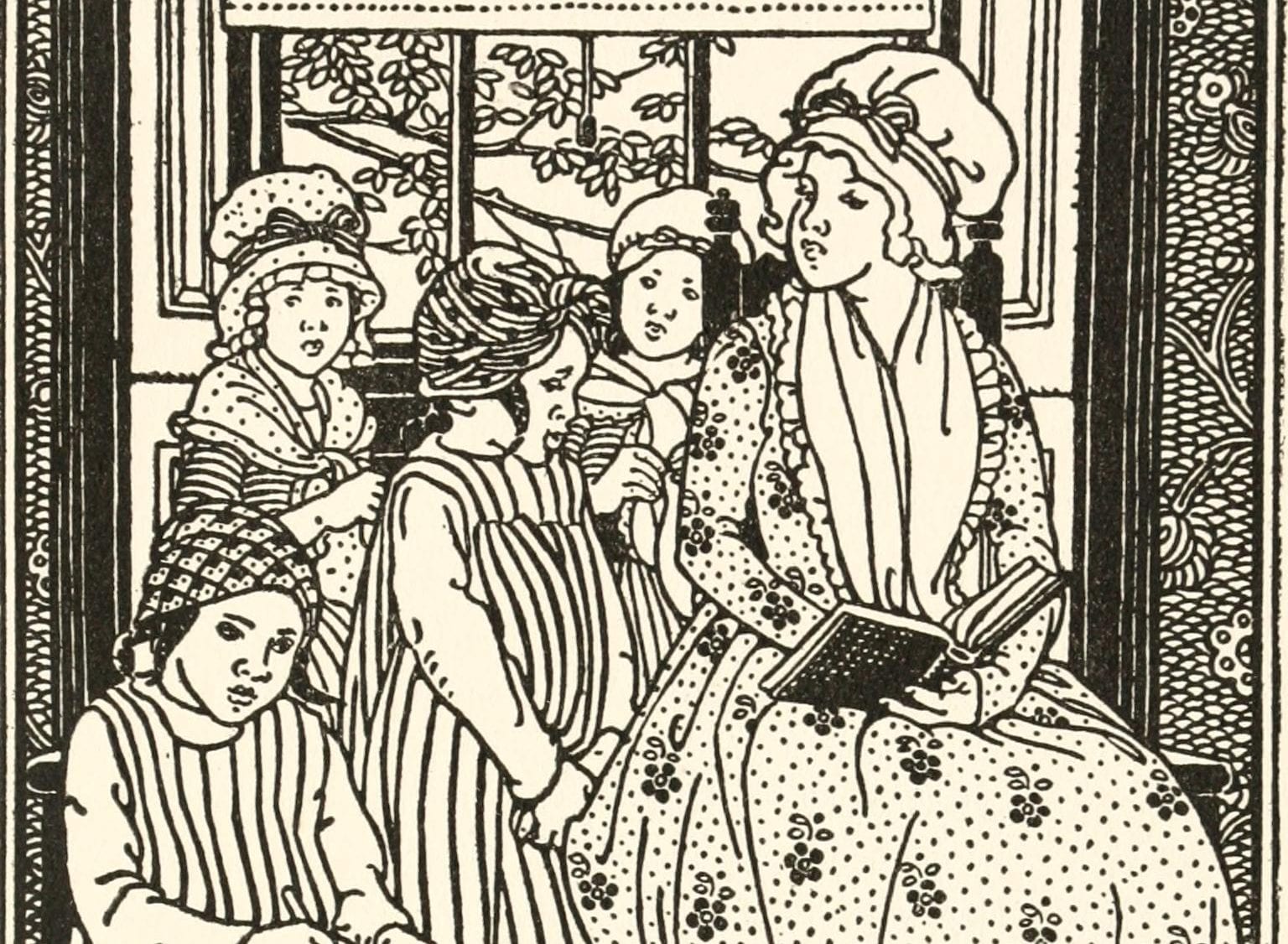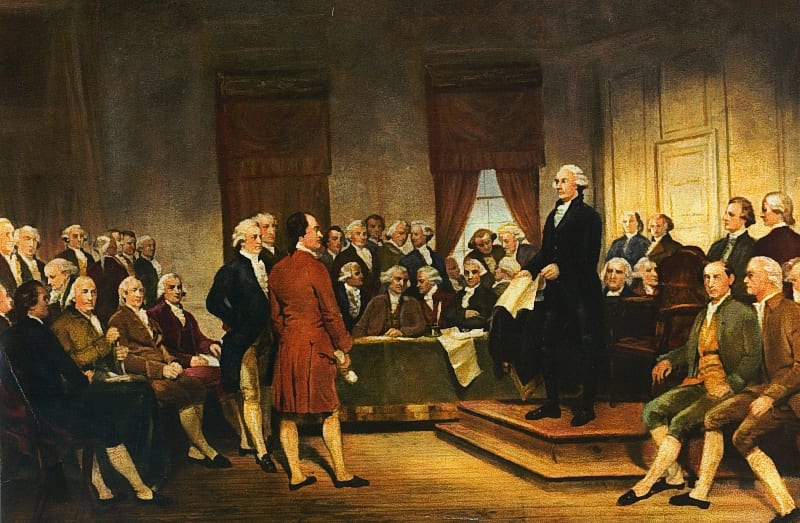
No related resources
Introduction
In October 1787, James Madison sent a copy of the signed Constitution to Thomas Jefferson in Paris, where he was serving as the Ambassador to the Court of Louis XVI. In his letter, Madison explained that the Constitution was a vital improvement in structure and power over the Articles of Confederation. He wished, however, that more checks and balances had been included. In this response to Madison, Jefferson first summarized what he liked about the proposed document. He was “captivated” by what the delegates to the Convention called the partly national, partly federal compromise. Jefferson then turned to “what I do not like.” He was troubled by two omissions. He listed six rights that ought to be stated “clearly and without sophisms.” And he wanted the President limited to two terms in office.
By December 1787, three states had ratified the Constitution and two more were about to do so. And all this without any substantial opposition in the conventions called to ratify the proposed Constitution, except for the Pennsylvania Minority Report (1787). But Jefferson’s concerns about the absence of a bill of rights was a prominent theme in the pamphlet literature in fall 1787 (The Federal Farmer IV (1787); An Old Whig IV (1787); Brutus II (1787)).
In December 1787, Madison was focused on securing rights by way of a fundamental alteration in the structure of the continental government rather than by imposing what he called “parchment barriers” on that government. He was also determined to save the proposed Constitution from the uncertainties of a second convention.
Source: To James Madison from Thomas Jefferson, 27 December 1787 (Founders Online), https://goo.gl/ZaJfSg. For ease of reading, we have added paragraph divisions.
. . . The season admitting only of operations in the cabinet, and these being in great measure secret, I have little to fill a letter.[1] I will therefore make up the deficiency by adding a few words on the Constitution proposed by our Convention. I like much the general idea of framing a government which should go on itself peaceably, without needing continual recurrence to the state legislatures. I like the organization of the government into Legislative, Judiciary and Executive. I like the power given the legislature to levy taxes, and for that reason solely approve of the greater house being chosen by the people directly. For though I think a house chosen by them will be very ill qualified to legislate for the Union, for foreign nations, etc. yet this evil does not weigh against the good of preserving inviolate the fundamental principle that the people are not to be taxed but by representatives chosen immediately by themselves. I am captivated by the compromise of the opposite claims of the great and little states, of the latter to equal, and the former to proportional influence. I am much pleased too with the substitution of the method of voting by persons, instead of that of voting by states: and I like the negative given to the Executive with a third of either house, though I should have liked it better had the Judiciary been associated for that purpose, or invested with a similar and separate power. There are other good things of less moment.
I will now add what I do not like.
First the omission of a bill of rights providing clearly and without the aid of sophisms for freedom of religion, freedom of the press, protection against standing armies, restriction against monopolies, the eternal and unremitting force of the habeas corpus law, and trials by jury in all matter of fact triable by the laws of the land and not by the law of Nations. To say, as Mr. Wilson[2] does that a bill of rights was not necessary because all is reserved in the case of the general government which is not given, while in the particular ones all is given which is not reserved might do for the audience to whom it was addressed, but is surely gratis dictum,[3] opposed by strong inferences from the body of the instrument, as well as from the omission of the clause of our present confederation which had declared that in express terms.[4] It was a hard conclusion to say because there has been no uniformity among the states as to the cases triable by jury, because some have been so incautious as to abandon this mode of trial, therefore the more prudent states shall be reduced to the same level of calamity. It would have been much more just and wise to have concluded the other way that as most of the states had judiciously preserved this palladium, those who had wandered should be brought back to it, and to have established general right instead of general wrong. Let me add that a bill of rights is what the people are entitled to against every government on earth, general or particular, and what no just government should refuse, or rest on inference.
The second feature I dislike, and greatly dislike, is the abandonment in every instance of the necessity of rotation in office, and most particularly in the case of the President. Experience concurs with reason in concluding that the first magistrate will always be re-elected if the Constitution permits it. He is then an officer for life. This once observed it becomes of so much consequence to certain nations to have a friend or a foe at the head of our affairs that they will interfere with money and with arms. . . .
Smaller objections are the appeal in fact as well as law, and the binding all persons Legislative, Executive and Judiciary by oath to maintain that constitution.
I do not pretend to decide what would be the best method of procuring the establishment of the manifold good things in this constitution, and of getting rid of the bad. Whether by adopting it in hopes of future amendment, or, after it has been duly weighted and canvassed by the people, after seeing the parts they generally dislike, and those they generally approve, to say to them “We see now what you wish. Send together your deputies again, let them frame a constitution for you omitting what you have condemned, and establishing the powers you approve. Even these will be a great addition to the energy of your government.”
At all events I hope you will not be discouraged from other trials, if the present one should fail of its full effect. . . .
- 1. Jefferson refers to the Court of Louis XVI.
- 2. See James Wilson's State House speech or New York Ratifying Convention debates
- 3. A gratuitous statement, in this case for the reasons Jefferson immediately gave.
- 4. Article II of the Articles of Confederation states “each state retains its sovereignty, freedom and independence, and every power, jurisdiction and right, which is not by this confederation expressly delegated to the United States in Congress assembled.”
The Jefferson-Madison Exchange
March 15, 1789
Conversation-based seminars for collegial PD, one-day and multi-day seminars, graduate credit seminars (MA degree), online and in-person.




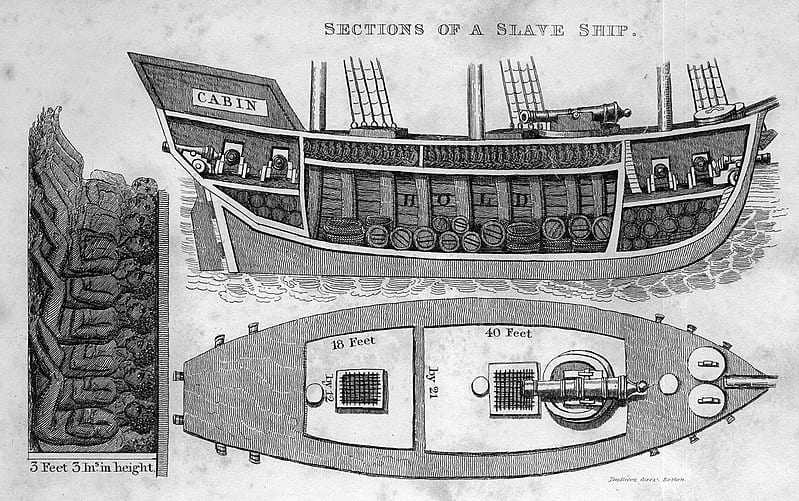






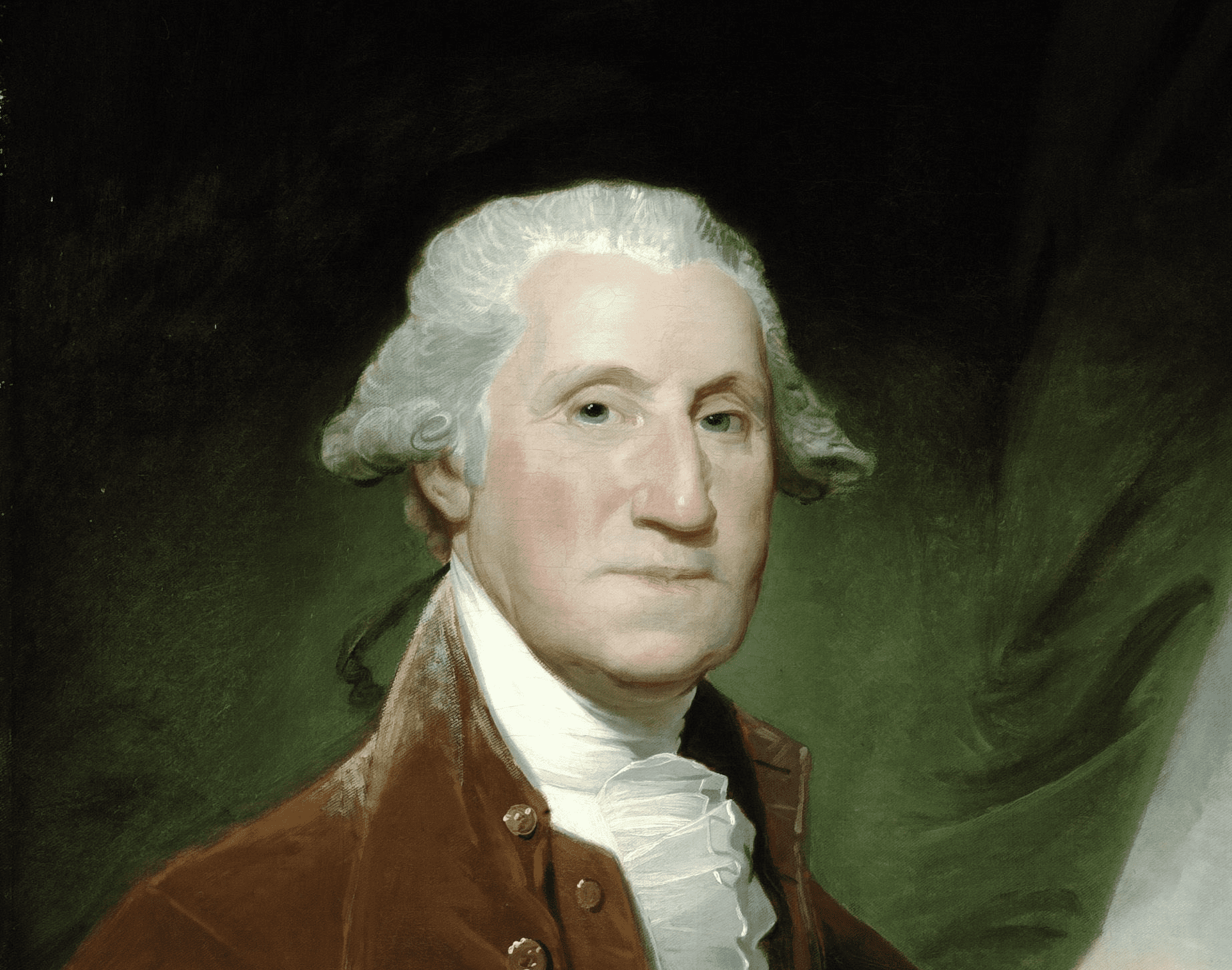















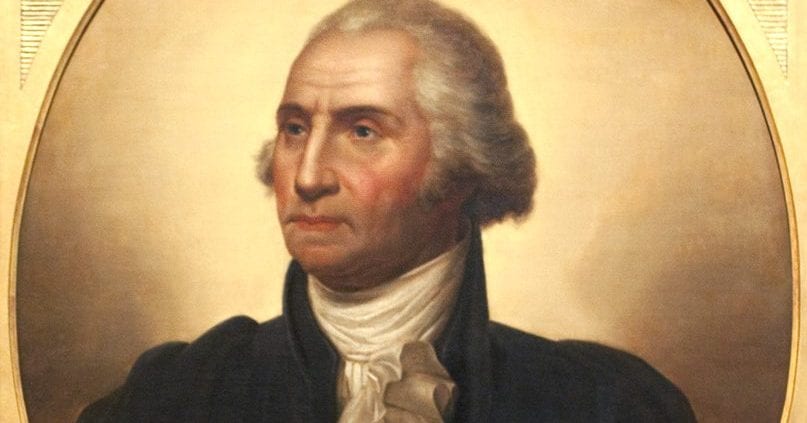
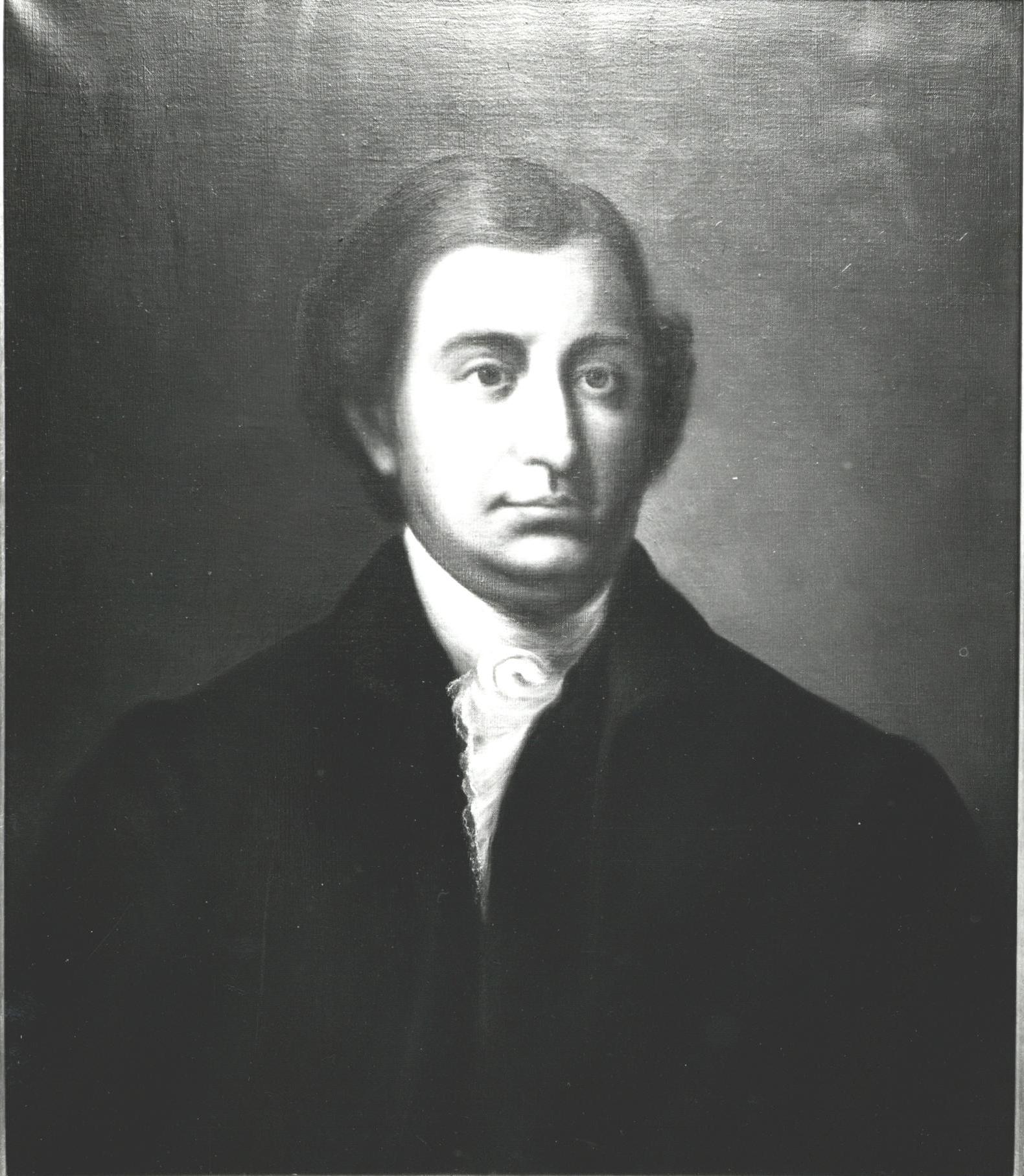
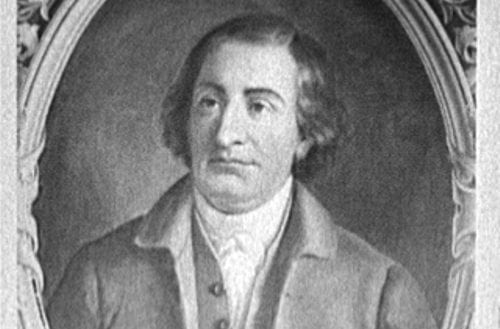
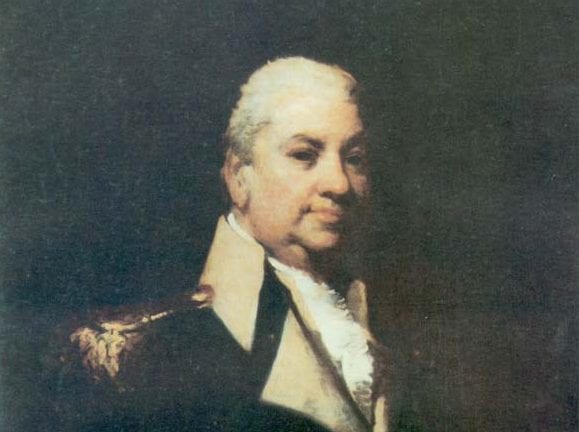




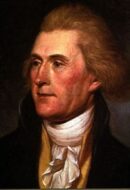













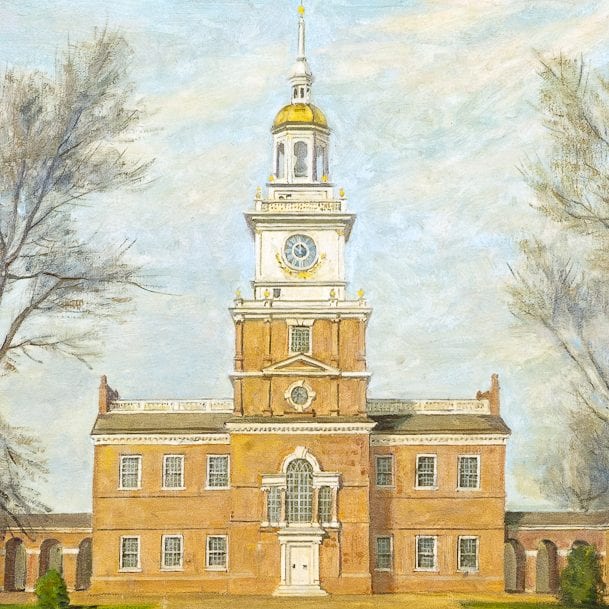

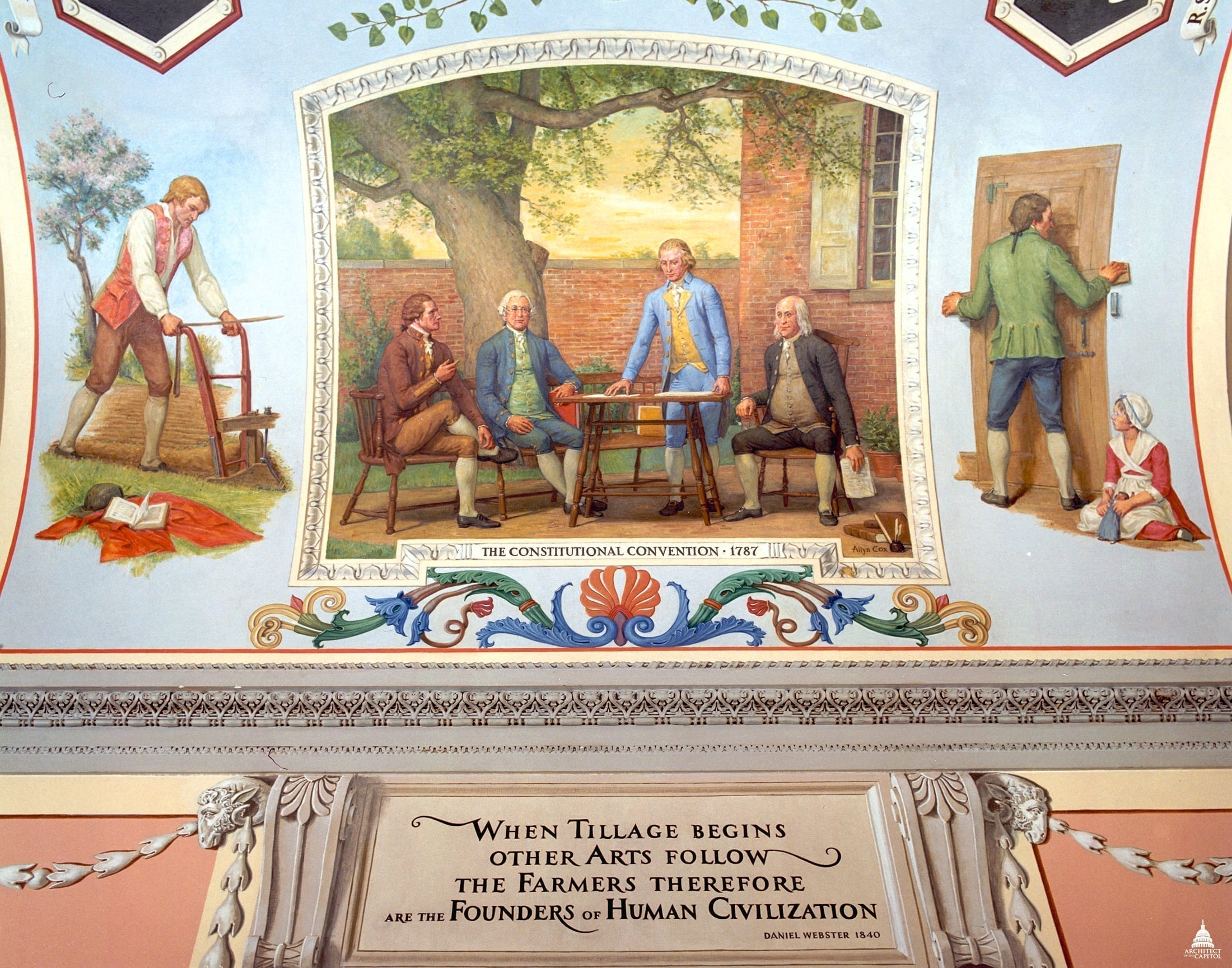

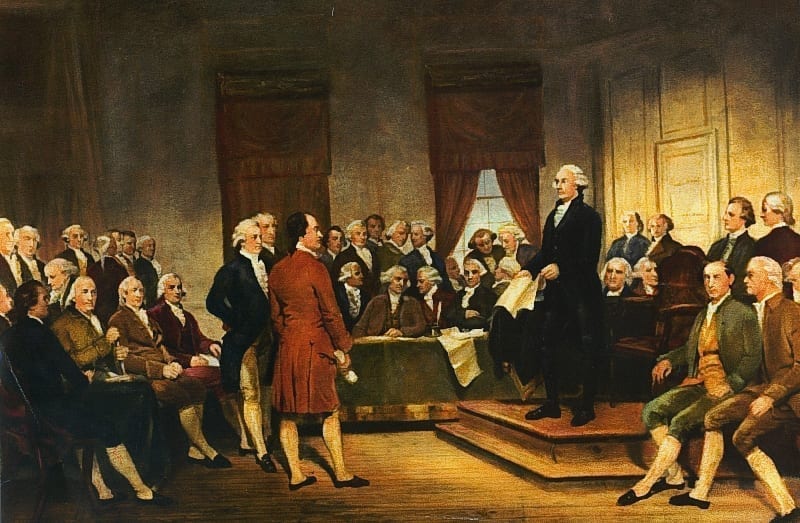


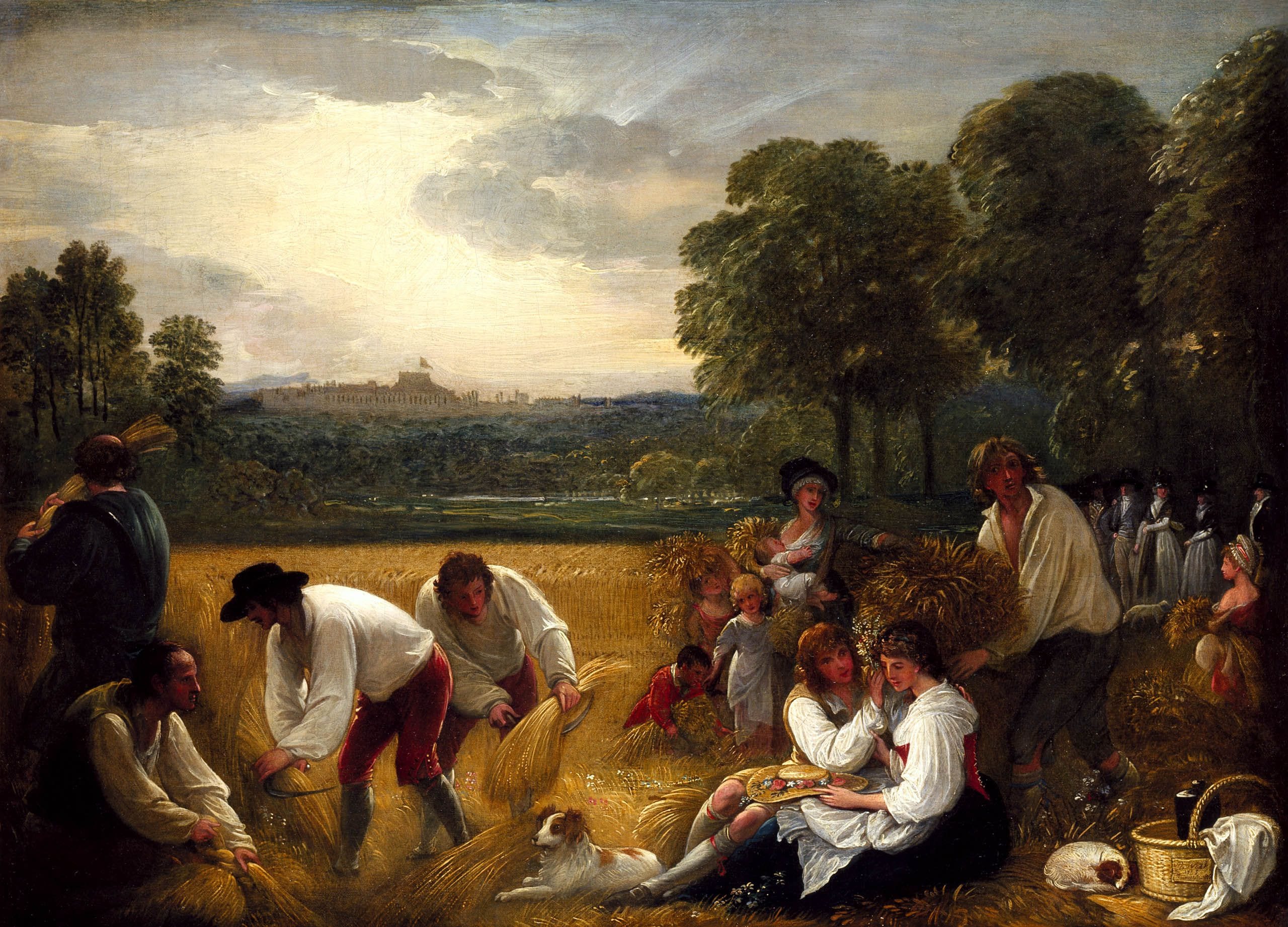


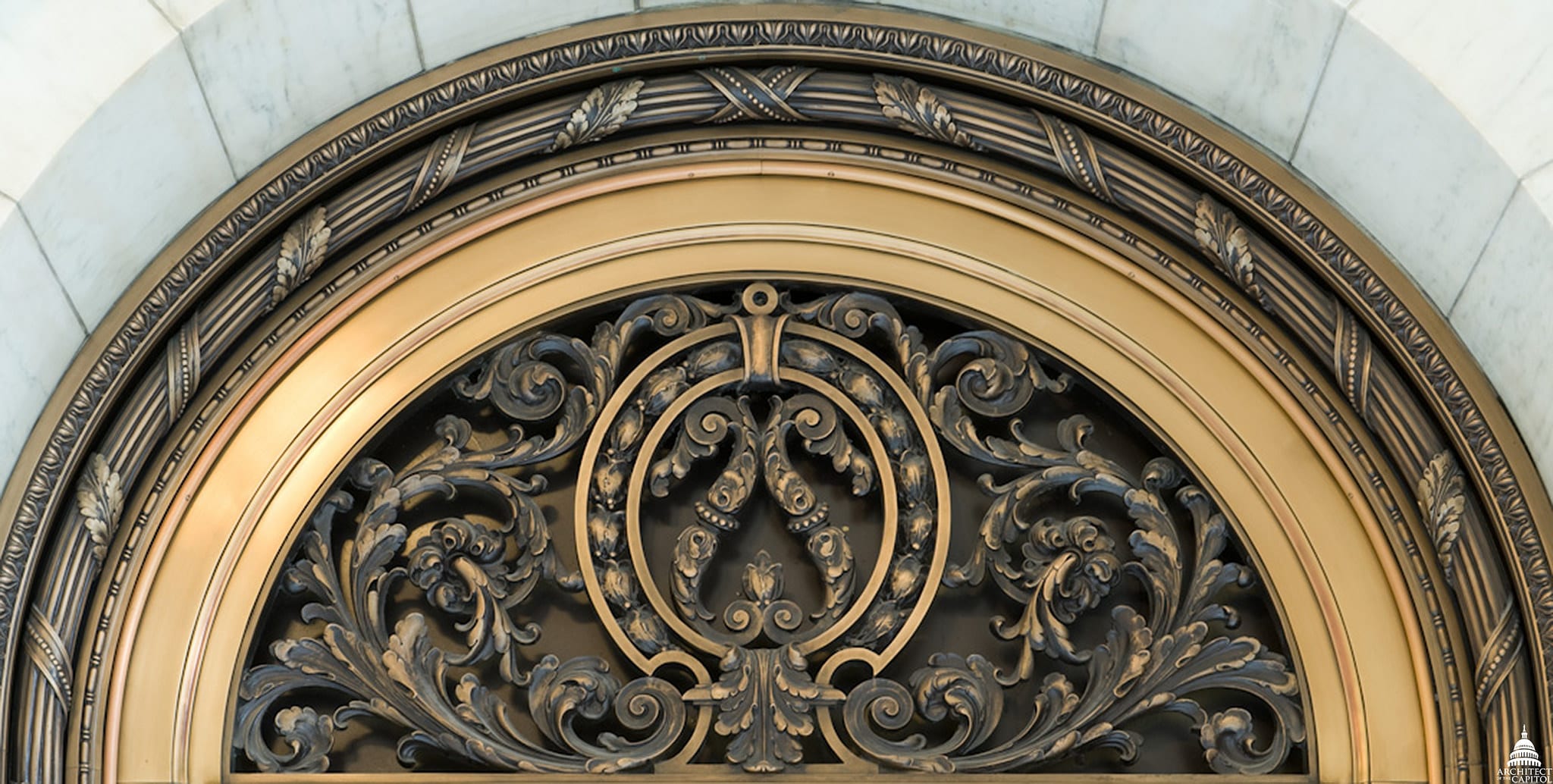













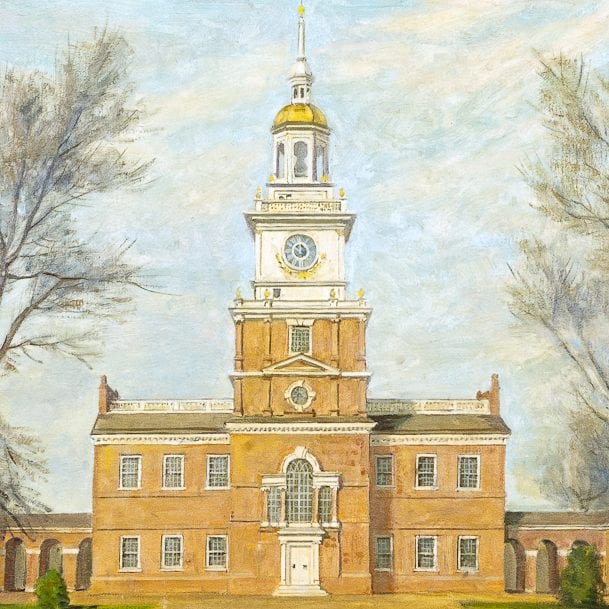
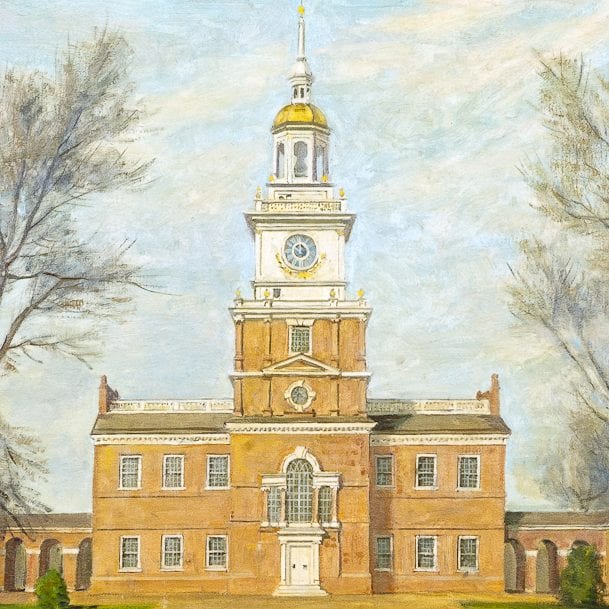






































































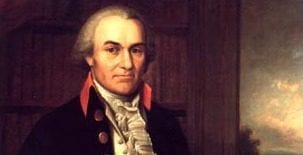



























![Finley, A. (1829) Pennsylvania. Philada. [Map] Retrieved from the Library of Congress, https://www.loc.gov/item/98688548/.](/content/uploads/2024/02/Map-of-PA--273x190.jpg)





















